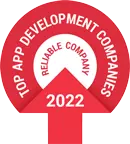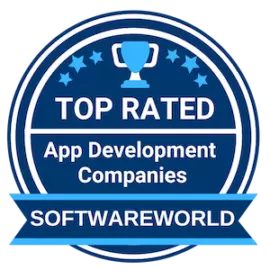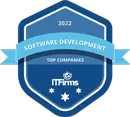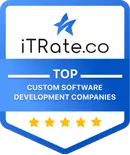Automated ESG Reporting and CSRD Compliance
Environmental, social, and governance (ESG) reporting is a complex and vital task. Avoiding regulatory fines and reputation risks is an ongoing challenge—due to insufficient data quality, numerous information silos, etc. Streamline your compliance with Corporate Sustainability Reporting Directive (CSRD) by automating sustainability data collection, analysis, and reporting.
How can we help?
Our services cater to EU-based and third-country enterprises with subsidiaries in the European Union subject to CSRD but lacking a compliant ESG reporting system.

Altoros can help you to build a reporting system that facilitates the transparent disclosure of nonfinancial data related to your environmental impact, social responsibility, governance practices, etc. By employing these tools, businesses can effectively track, measure, and analyze key sustainability metrics, making data-driven decisions that align with ESG goals.

Seamlessly integrate a newly created ESG reporting system with your financial infrastructure, connecting disparate sources. Enhancing your ESG reporting accuracy and transparency, leverage your existing system's strengths while adapting it to fulfill financial data requirements.

With custom data analytics tools, you can unlock invaluable insights from your business’s ESG data to fuel well-informed sustainability strategies. With a data-driven approach, confidently steer your organization toward responsible practices that resonate with stakeholders and enhance your environmental impact.

Altoros develops cloud-based sustainability solutions to set up robust ESG programs—while streamlining data collection, reporting, and risk management. Embrace scalability and agility, customized to align with your unique sustainability goals.
Why does CSRD compliance matter?
Why choose Altoros as a CSRD compliance solution provider?
PROVEN TRACK RECORD
With 350+ experts and 20 years of experience working with cutting-edge technologies, Altoros can deliver development services tailored to your specific business needs. Having worked with hundreds of projects either for the financial/banking sector, or for the reporting needs (or both), we have an established methodology aimed to maximize delivery.
SOLID BI AND DATA MANAGEMENT EXPERTISE
Our track record includes successful projects handling up to hundreds of different data sources. This included enterprise reporting systems, data warehouses, ETL tools, data quality initiatives, migration strategies, etc.
SECURITY AND PRIVACY COMPETENCE
Altoros has vast experience in implementing measures to prevent data breaches, leaks, or corruption. Our experts will help you to utilize robust encryption, firewalls, intrusion detection systems, role-based access control, and automated backups to keep your information safe.
PROFICIENCY IN REBUILDING LEGACY SYSTEMS
We have decades of expertise in refining and integrating existing legacy software systems, ensuring seamless implementation of the new solution.
TRACKING CUTTING-EDGE TECHNOLOGIES
Altoros utilizes the latest technology and tools to develop advanced CSRD compliance solutions helping you to enhance your operational efficiency and data management/reporting.
SCALABILITY IN MIND
Using cloud-based architectures, we’ve been designing reporting systems that efficiently handle growing data volumes and dynamically scale to accommodate increased loads. Having worked with modular systems and microservices for years, our experts will help you to effortlessly add new data sources or adjust reporting tools as your needs evolve.
MAINTENANCE AND SUPPORT
With every project, Altoros is committed to providing ongoing maintenance and support, ensuring that your compliance solutions remain current and in line with any CSRD updates.
Related cases
With 1,420 projects delivered across 30+ countries, we have the expertise to help your company achieve CSRD compliance. Get in touch with us to start your transformation journey.
Frequently asked questions
What is the CSRD?
The Corporate Sustainability Reporting Directive (CSRD) is a regulation imposed by the EU that obliges companies to collect, analyze, and report sustainability data. The goal is to provide stakeholders, including investors, with better insight into organizations' environmental, social, and governance (ESG) performance. A successful ESG report should encourage companies to develop more responsible approaches to business, boiling down to efficient data collection—a task that many organizations find challenging. Similar to the financial reporting process, ESG disclosures entail both quantitative and qualitative data, such as metrics on carbon emissions and energy usage, as well as narratives about employee well-being initiatives and community engagement.
Which companies must comply with CSRD?
The directive applies to listed companies, large companies with €40 million turnover and/or €20 million total assets and/or 250 or more employees, and third-country companies with subsidiaries in the EU. The CSRD increases the number of companies required to comply with ESG reporting from nearly 12,000 to 50,000.
When do companies have to start complying with CSRD?
Existing companies under the Non-Financial Reporting Directive (NFRD) will start reporting under the CSRD from January 1, 2025 on data from 2024. Large companies not currently subject to will start reporting from January 1, 2026 on 2025 data. Listed SMEs, small and noncomplex credit institutions and captive insurance undertakings will start reporting from January 1, 2027 on data gathered in 2026. Finally, third-country undertakings with net turnover above €150 million in the EU will start reporting from January 1, 2029 on 2028 data.
What are the penalties for noncompliance with the CSRD?
Noncompliance with the CSRD could result in significant penalties—including fines, imprisonment, reputational damage, and potential legal actions. Companies that fail to report and comply with the CSRD face fines of up to €10 million or 5% of their annual revenue.
How can Altoros help in achieving CSRD compliance?
Altoros offers the development of custom software that automates the collection, analysis, and reporting of sustainability data, ensuring compliance with CSRD standards. Coupled with expert consultancy and strategic analysis, we offer seamless integration and adaptation to evolving regulations.
Will the software have the capability to adjust to future changes in CSRD regulations?
Absolutely. Altoros can design CSRD applications to be flexible and adaptable by introducing approaches such as a modular architecture, domain-driven design, 12-factor apps (microservices), etc. This ensures easier incorporation of future updates and modifications to accommodate evolving CSRD compliance regulations or your company’s requirements.
Seeking a solution like this?
Contact us and get a quote within 24 hours
































